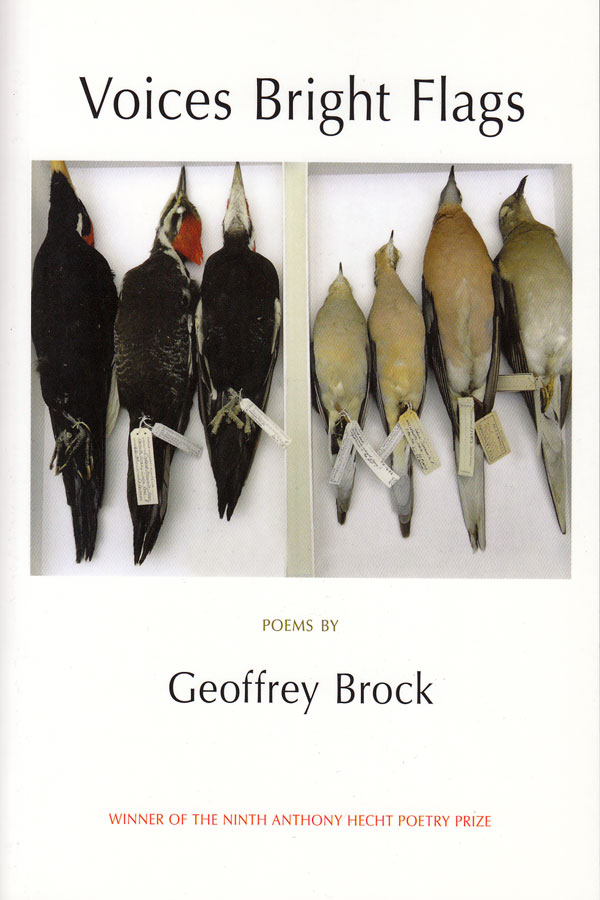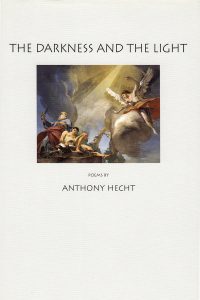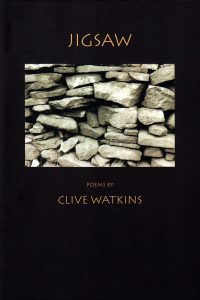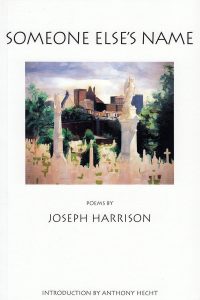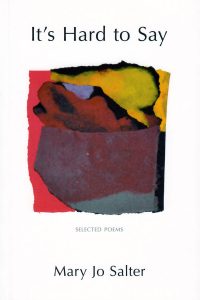Voices Bright Flags
£8.99
Winner of the 9th annual Anthony Hecht Poetry Prize
Foreword by the judge, Heather McHughVoices Bright Flags is a series of experiments in what is sometimes called public poetry, with the poet's country, America, and his relation to it, as the main theme. The poems approach America from a range of perspectives – political, historical, and personal – and in a range of styles and voices, with each voice planting its own flag, as it were, implying its own America. Together the poems form a partial (in both senses) mosaic, a discordant chorus, a succession of conversations and quarrels between the poet and the motley citizens of his imagination.
Voices Bright Flags
“The collection Voices Bright Flags could have been created only by a lover of texts – an avid consumer of histories, biographies, diaries, essays, articles, ledgers, novels and ephemera. It is a book of and for the old-fashioned reader, the one who will appreciate the precise prosodic dados and dove-tailings of the poet’s craft.” – from Heather McHugh’s foreword
"Geoffrey Brock’s Voices Bright Flags is ambitious in the best sense of the term. The breadth of his subjects – from the first Western contact with the Hawaiian Islands, to ornithology, the buffalo nickel, and his young son’s nightmares – makes the unity of vision behind the book all the more striking. There is insight here without self-consciousness, bold craft without showiness. Voices Bright Flags is a rich, important, and deeply humane collection." – Don Bogen
"Geoffrey Brock’s Voices Bright Flags is rooted in political emotions, not political opinions. It combines exquisite technical sophistication with plainspoken language attuned to the particulars of time and place, a combination put in service to a rich and troubled vision of America as both stubborn dream and dream-killing reality. If you’re looking for poetry that is immersed in literary and social history while avoiding all the usual pieties and commonplaces about American culture in favor of keenly evoked and deeply felt experience, personal and collective, this book is for you." – Alan Shapiro
Reviews of Voices Bright Flags
The Hudson Review, Summer 2015
“[W]hile distinguishing himself as one of the pre-eminent translators of Italian poetry in this country, Brock showed himself with his first book, Weighing Light, also to be one of the most gifted of the younger formalists. His gift is on full display in the new book. Many of the poems in Voices Bright Flags take figures and events from American history as their subjects. It is a curious thing about oldfashioned poetic form that not only is it best for humorous verse … but it accommodates historical subjects well and both reveals their symmetries and hints at their chaotic origins. This may be true of any poetry about a historical subject, from the Iliad to "The Shield of Achilles." In the book’s first poem, "Bryant Park at Dusk," Brock suggests that the act of reading will be his subject. He describes watching a woman reading on a park bench as the evening comes on. He sees how she looks away from her reading, then returns, still in a kind of revery. It is perhaps this revery of attention that his series of historical poems asks of us: a return to subjects we think we know already. The subjects of the poems range from Phillis Wheatley in England to the battle of Cold Harbor to the Westward Expansion to Anzio in World War II to the ivory-billed woodpecker and the passenger pigeon. Brock is such a good writer that you never wonder if he can sustain the poem … " – Mark Jarman
Fuggirmi io sol non so
In the real world, lighting is undesigned;
here it’s high art. After we find our seats,
silence our cells and smooth our ruffled minds,
and just before the curtains rise, houselights
go out. We vanish, and before our eyes
adjust, a splendid spectacle begins
in which we’re borne, again, into the lives
of others – figures whose shaded joys and pains
might be, for these three hours, ours. Yet
what can we hope to understand of them?
Words in a strange, old tongue (il fazzoletto!)
shine through the wordless music as through a scrim
by turns opaque and blindingly transparent –
words whose sources are masks, mouths gaping wide.
Still, some intelligence like a welder’s current
leaps the orchestra pit (where shadows hide
that pulsing drum, those lacerating strings),
and something is spilling, something even grander,
perhaps, than life, from the woman who now sings,
now dies, as passion fills white space around her,
fills us, and tears are spilling down our faces –
there’s too much light, it’s all too brightly lit!
Kind curtains fall, and a governed dark replaces
all light but the glow of the pages in the pit.
The Waywiser Press
The Tallahassee of Other Days
There was no history, there were only the storms.
– Donald Justice, “The Miami of Other Days”
It was still a metropolis of trees, a mere
town of people. Longleafs and live oaks
raised their awnings over summer and winter,
over the sprawl of strip malls and the dim
suburban constellations. But the awnings
were thinning, and the canopy roads that spoked
outward toward forgotten towns – Meridian,
Bainbridge, Miccosukee – survived only
by ordinance, souvenirs of country lanes
and coaches, of the days before I-10
cleaved us like a river, and the flood of cars…
A May afternoon: I’m idling at the light
at Apalachee Parkway and Magnolia.
Around me, smug frat boys and bureaucrats
(or so I smugly guess) keeping their cool
with windows raised. Up at the intersection,
two black men sweating in three-piece suits,
extending The Final Call; across the road,
King Love himself, our local patron saint,
he of the long white beard, the golden crown
of paperboard, the smell that knocks you back –
he of the many placards, exhorting us
some days to love each other instead of Jesus,
some days to help him find a home and wife.
And farther on, a half-mile down the Parkway,
shifting between two capitols, new and old:
the Spanish flag, the Union Jack, Old Glory,
and the Stars and Bars… A primer of sorts.
Then south on Monroe, toward sandy washboard roads
ghosting through pinewoods, scrub, palmetto plains;
toward sinkholes tapping the veins of buried rivers –
Blue Sink, Cherokee, Big and Little Dismal:
swimming holes for drunken good ole boys
and those of us enough like them to pass;
storehouses of stolen Chevys and Clovis points,
of camel teeth and the tibias of sloths,
of the crushed shells and sands of an absent ocean.
There was nothing there that was not history.
The Waywiser Press
Excerpts
About Opera
Fuggirmi io sol non so
In the real world, lighting is undesigned;
here it’s high art. After we find our seats,
silence our cells and smooth our ruffled minds,
and just before the curtains rise, houselights
go out. We vanish, and before our eyes
adjust, a splendid spectacle begins
in which we’re borne, again, into the lives
of others – figures whose shaded joys and pains
might be, for these three hours, ours. Yet
what can we hope to understand of them?
Words in a strange, old tongue (il fazzoletto!)
shine through the wordless music as through a scrim
by turns opaque and blindingly transparent –
words whose sources are masks, mouths gaping wide.
Still, some intelligence like a welder’s current
leaps the orchestra pit (where shadows hide
that pulsing drum, those lacerating strings),
and something is spilling, something even grander,
perhaps, than life, from the woman who now sings,
now dies, as passion fills white space around her,
fills us, and tears are spilling down our faces –
there’s too much light, it’s all too brightly lit!
Kind curtains fall, and a governed dark replaces
all light but the glow of the pages in the pit.
The Waywiser Press
The Tallahassee of Other Days
There was no history, there were only the storms.
– Donald Justice, “The Miami of Other Days”
It was still a metropolis of trees, a mere
town of people. Longleafs and live oaks
raised their awnings over summer and winter,
over the sprawl of strip malls and the dim
suburban constellations. But the awnings
were thinning, and the canopy roads that spoked
outward toward forgotten towns – Meridian,
Bainbridge, Miccosukee – survived only
by ordinance, souvenirs of country lanes
and coaches, of the days before I-10
cleaved us like a river, and the flood of cars…
A May afternoon: I’m idling at the light
at Apalachee Parkway and Magnolia.
Around me, smug frat boys and bureaucrats
(or so I smugly guess) keeping their cool
with windows raised. Up at the intersection,
two black men sweating in three-piece suits,
extending The Final Call; across the road,
King Love himself, our local patron saint,
he of the long white beard, the golden crown
of paperboard, the smell that knocks you back –
he of the many placards, exhorting us
some days to love each other instead of Jesus,
some days to help him find a home and wife.
And farther on, a half-mile down the Parkway,
shifting between two capitols, new and old:
the Spanish flag, the Union Jack, Old Glory,
and the Stars and Bars… A primer of sorts.
Then south on Monroe, toward sandy washboard roads
ghosting through pinewoods, scrub, palmetto plains;
toward sinkholes tapping the veins of buried rivers –
Blue Sink, Cherokee, Big and Little Dismal:
swimming holes for drunken good ole boys
and those of us enough like them to pass;
storehouses of stolen Chevys and Clovis points,
of camel teeth and the tibias of sloths,
of the crushed shells and sands of an absent ocean.
There was nothing there that was not history.
The Waywiser Press

